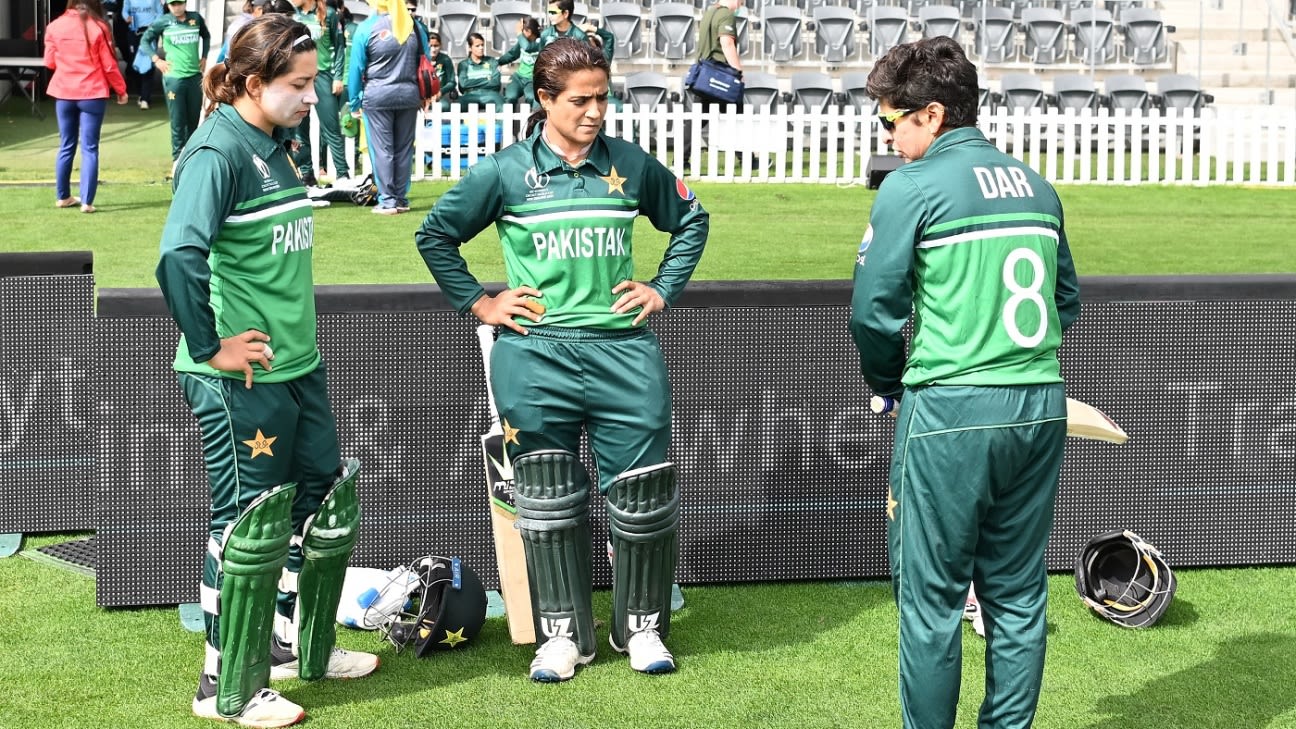Maroof: We need to work on forming partnerships and rotating the strike
Batters’ tentativeness cost Pakistan in the Women’s World Cup, says Maroof
“It’s disappointing. The results we wanted are not there, so of course it hurts us,” Mahroof said. “Individually, we need to take more responsibility, especially as a batting unit. We have to be more brave and back ourselves. With the plans we’ve got, we have to have the skills to execute.”
For Maroof, Pakistan’s underperformance with the bat comes down to tentativeness, which led to a lack of big partnerships and slow scoring rate, “The intent should be there to score runs. All over the world, cricket has changed. We have to adapt to that,” she said. “We needed partnerships and overall the girls were working towards that. We were losing wickets at crucial times which added to our pressure and our games used to go deep. The other thing is we need to work on strike rotation and every individual batter is going to work and improve on it.”
“Grabbing the key moments is very important. When you sense the moment is such that you need to grab it and change the tide, in such situations we didn’t respond very well. We definitely need to work on that and like I said, our batting approach needs to change,” she said.
And of course, Maroof could not leave without a final word for the biggest highlight Pakistan’s brought to the World Cup, her daughter Fatima. Asked about the experience of being a mother on tour, Maroof paid tribute to her own mum, who traveled as Fatima’s caregiver which allowed her to work on her game. “My mother is around and that has taken a lot of pressure off of me and I can concentrate on my cricket,” she said.
Although the tournament overall has been one to forget for Pakistan, Maroof has something more than results to look back on. She has stored all the memories of Fatima at the matches, winning hearts and charming all she came into contact with and for that, she’ll look back on this World Cup with pride. “The love Fatima got, I wasn’t expecting. She is very blessed,” she said. “I’ve saved it all on social media – all the comments and the love. That’s what I will show her once she grows up – that look you got so much love. She’ll be very proud of how much love she got and how her mum represented Pakistan in a World Cup.”
Firdose Moonda is ESPNcricinfo’s South Africa correspondent
For all the latest Sports News Click Here

